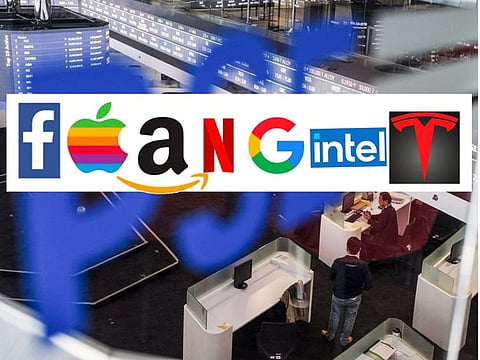Filipinos: Get ready to tap global giants like Apple, Google, Meta, Tesla via GPDRs
Investors, OFWs may soon own shares in mega-cap global companies—from their phones

Manila: Filipinos, armed with nothing but their mobile phones, could soon be tapping into the global markets—investing in the very giants of Silicon Valley: Apple, Google, Meta, Tesla.
This is no far-off dream, it’s a revolution coming straight to their fingertips.
The Philippine Stock Exchange (PSE) is now gearing up to unveil Global Philippine Depository Receipts (GPDRs), a game-changing move that will allow local investors to own pieces of the world’s most coveted companies.
No more navigating the maze of foreign trading platforms or dealing with apps hosted on distant shores that take forever to respond to queries or resolve simple requests from small-time investors.
For the first time, Filipinos can participate in the success of these global tech behemoths, and all from a platform based right at home.
Game-changer
The shift could be a game changer for a new generation of retail investors. That would include the millions of overseas Filipino workers (sending $33 billion home per year), looking for a non-traditional vehicle in which to park their savings.
PSE President Ramon Monzon is at the helm of this shift, harnessing the power of fintech to reshape the country’s investing climate.
Now, the PSE is inviting equities market shareholders to review and comment on the proposed rules prepared by the local bourse for GPDR.
What are GPDRs?
• A Global Philippine Depository Receipt (GPDR) is a peso-denominated instrument issued by a depositary bank to represent an investor’s ownership in a foreign company's shares listed in an overseas exchange. • Instead of buying shares directly in foreign exchanges, investors purchase GPDRs, which are backed by shares held in trust by a depository. • This simplifies the process and eliminates the need to navigate foreign brokerage accounts or currency exchanges. • This financial security representing ownership of shares in foreign companies are then to be traded locally on the PSE. • GPDRs are modelled after the concept of Global Depository Receipts (GDRs) and American Depository Receipts (ADRs).
"GPDRs will pave the way for cross-border trading in the PSE. Aside from expanding PSE's product offerings, GPDRs will enable investors to diversify their portfolio and hold foreign securities without having to directly trade in overseas markets," Monzon said in a statement on Tuesday (October 1, 2024).
Nasdaq—America's bustling trading hub—is throwing open the doors to Filipinos via GPDR. With the rise of GPDRs, companies whose meteoric growth has dwarfed market indices over the last decade, are now within reach.
No need to open foreign brokerage accounts, no need to cross digital borders for simple queries.
Going forward, companies that seek access to capital from global markets could tap this vehicle while providing investors with opportunities to diversify.
Timing
With the Philippine stock market on an upward swing and the US Federal Reserve hinting at further loosening its monetary grip, which could have a knock-on effect on both global and local market conditions.
The Philippine economy is booming, and a new generation of digital-savvy, internet-empowered investors is ready to seize the moment.
Monzon’s vision doesn’t stop here. His earlier bold moves—like slashing transaction fees and forging partnerships with regional powerhouses like SGX and IDX—have already made the PSE more accessible than ever before.
With GPDRs, he’s setting the stage for a new era in the local financial markets: one that could give local investors a front-row seat in the global economy, riding the wave of international wealth-building vehicles that, until recently, were only available to Western investors.
Access
The key to this is internet access, allowing greater financial “inclusion” for the country’s 116 million inhabitants.
High-speed terrestrial and satellite-based broadband services has seen remarkable improvement in the country as regulators are keen to harness greater competition. This drive has already brought retail satellite services to remote towns and islands.
GPDR: When was it started?
The GPDR programme has been in the works and is anticipated to launch soon. Rules are being finalised.
When will it launch?
No specific start date has been confirmed yet.
But once launched, Filipino investors will be able to stake their claim in mega-cap companies that have been at the forefront of the tech-driven economic revolution in markets like the US.
The move marks a pivotal moment for the PSE’s strategy to modernise and globalise local capital markets.
Who’s behind it?
The initiative is spearheaded by the Philippine Stock Exchange (PSE), under the leadership of its president, Ramon Monzon. The PSE is working in collaboration with major global exchanges like Nasdaq to bring foreign equities to Filipino retail investors.
It reflects the PSE's broader strategy of expanding market participation and using financial technology to bring advanced investment opportunities to local traders.
What's it for small investors?
For small retail investors, the launch of GPDRs is significant:
The initiative is poised to democratise access to global equities, allowing everyday Filipinos to participate in the wealth generated by international giants in tech, finance, and other sectors.
Sign up for the Daily Briefing
Get the latest news and updates straight to your inbox



